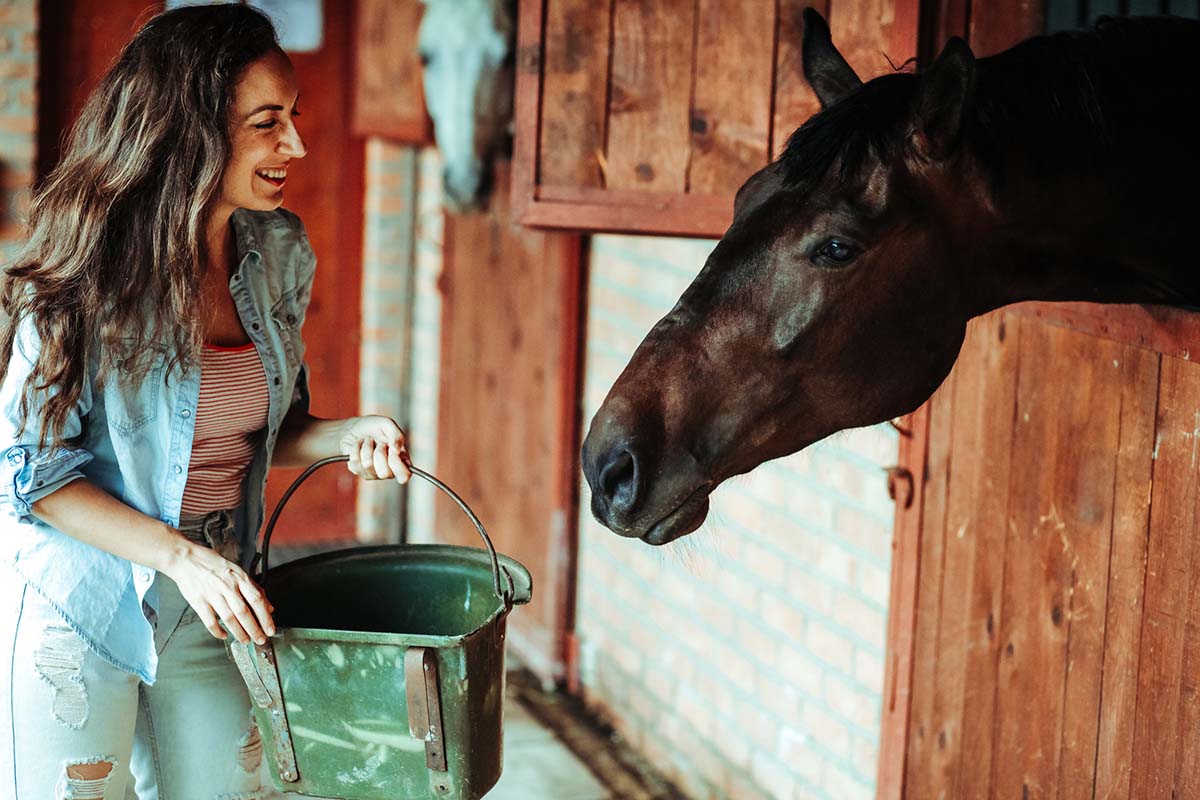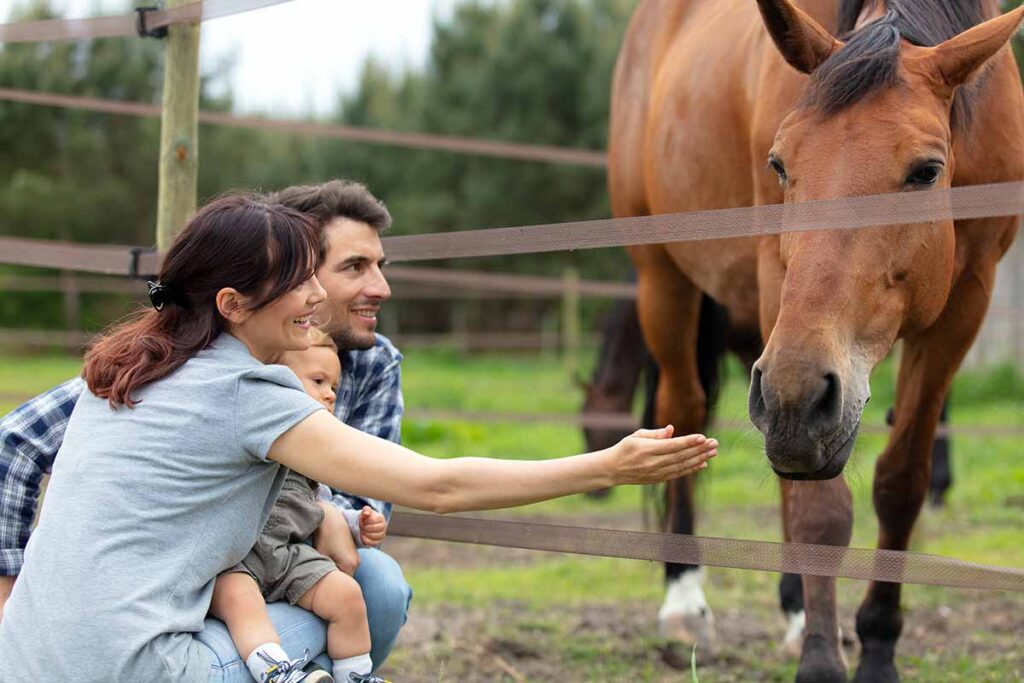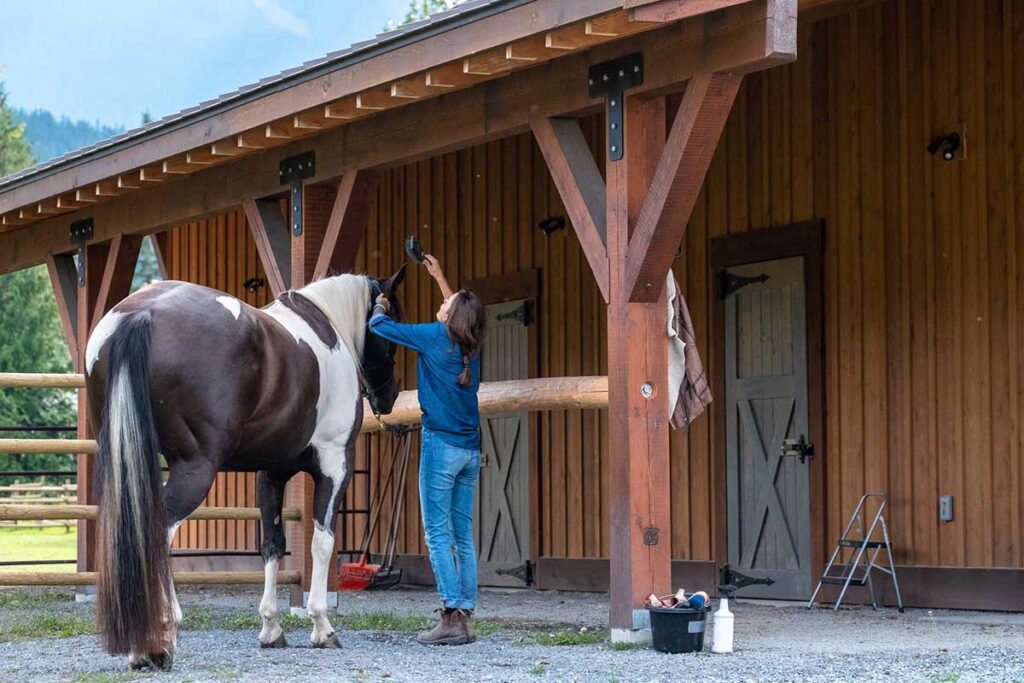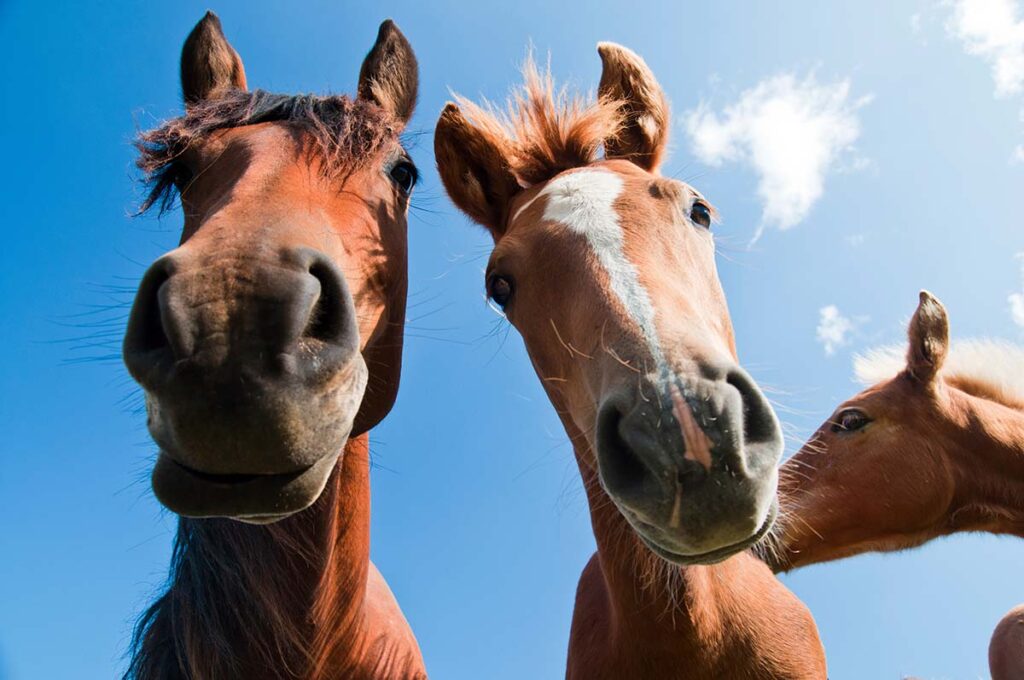One of the first questions you probably ask yourself after bringing home your first horse is, how much food does he actually need? Just like humans, horses need a balanced diet to stay healthy. But at 1,000-plus pounds, their nutrition requirements can be quite high! In this article, we’ll explore the factors that influence your horse’s food intake and help you ensure he’s getting the right amount of nutrients to thrive.
Factors That Affect Your Horse’s Food Intake
When feeding a horse, the goal is to maintain him at a healthy weight of about a 5 or 6 on the Henneke Body Condition Scale.
In general, horses tend to fall into two categories:
- Easy keepers that gain weight easily.
- Hard keepers that lose weight easily.
Whether your horse is an easy or a hard keeper depends on his genetics, breed, age, activity level, and overall health. For this reason, recommendations for how much horses need to eat fall into a range.
Veterinarians and nutritionists recommend horses eat 1.5-2.0% of their body weight each day in high-quality forage, such as pasture grass, hay (alfalfa and/or grass), hay pellets, hay cubes, beet pulp, or complete feed. That means a 1,000-pound horse needs to eat between 15 and 22 pounds of forage per day. Forage supplies horses with macronutrients such as protein, carbohydrates, and fat, as well as micronutrients such as vitamins and minerals. Forage is high in fiber (a carbohydrate), which is important for equine digestive health.
Pro Tip: A horse’s body condition can change drastically, sometimes without owners noticing. We recommend new owners take monthly profile photos of their horses to document and track body condition changes over time.
Calculating Your Horse’s Daily Forage Needs

To pinpoint how much forage your horse needs each day, first determine how much he weighs. You can find his weight in one of the following ways:
- Use a scale at your veterinarian’s office—this will give you an exact weight.
- Weigh your truck and trailer with your horse loaded on a truck scale, then weigh your truck and trailer without the horse (but with no other changes in contents, including passengers, tack, etc.!). The difference will give you your horse’s weight—this will give you an exact weight.
- Use a weight tape around your horse’s girth to approximate his weight—this will give you an estimate of your horse’s weight.
- Get a more accurate estimate of your horse’s weight by measuring his heart girth and length and inputting it into this equation: (Heart girth in inches2 x length in inches) / 330 = body weight in pounds
- Use an online weight calculator tool to get an estimate of your horse’s weight.
Adding Concentrates and Supplements
Forage doesn’t always provide all the basic nutrition horses need, so you might need to also provide fortified feeds or supplements. A hay analysis can identify deficiencies in your hay that require supplementation.
Fortified feeds containing forage or forage substitutes might be able to replace some or all of a horse’s hay ration. When using a fortified equine feed, follow the manufacturer’s instructions to ensure your horse’s diet is complete, unless directed by your veterinarian. Doing otherwise could lead to feeding too little or too much of certain important nutrients. For example, selenium is a vital trace mineral necessary for equine health but toxic if overfed.
Vitamin, mineral, and other supplements can help further customize diets for individual horse needs and fill gaps left by forage and fortified feeds. For example, some horses might benefit from additional biotin (which supports hoof and hair coat health) or omega-3 fatty acids (which add calories and are anti-inflammatory but often lacking in diets that don’t include pasture access).
Finally, when in doubt work with a veterinarian or qualified equine nutritionist to make sure your horse is getting the nutrition he needs.








